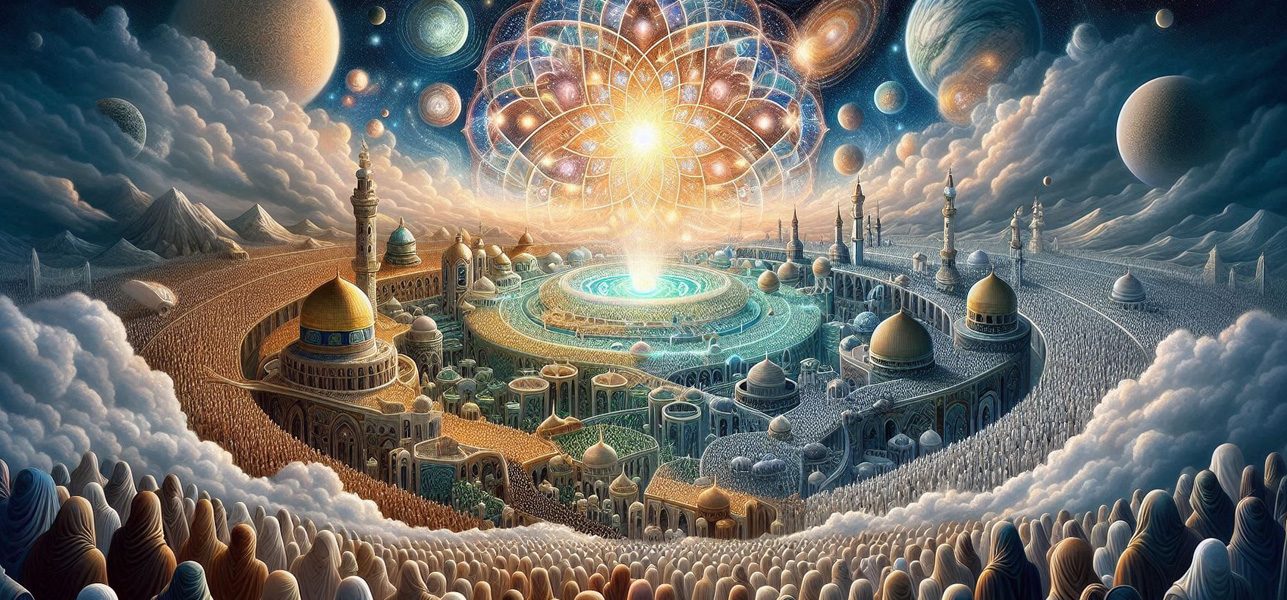From Unity to Entanglement: A Qur’anic Interpretation of Creation, Transformation, and Completion
“خَلَقَكُم مِّن نَّفْسٍ وَاحِدَةٍ ثُمَّ جَعَلَ مِنْهَا زَوْجَهَا”
The Qur’anic verse “He created you from a single soul, then made from it its mate”, this beautiful verse appears in multiple places in the Qur’an, including Surah Al-A‘rāf (7:189) and Surah An-Nisā’ (4:1), and Az-Zumar (39:6) invites a multi-dimensional reading, one that bridges linguistic precision, biological insight, and spiritual anthropology. This article explores how the verbs khalaqa and ja‘ala encode a journey from ontological unity to relational becoming.
-
Creation: The Emergence of Essence
- Khalaqa signals the origination of nafs wāḥidah—a singular, undivided soul.
- This is not merely biological, but a metaphysical unity, akin to the zygote in embryology: pure potential, not yet differentiated.
- In this layered model, this corresponds to the pre-Bashar state, before ego, gender, or form.
-
Transformation: The Activation of Relationship
- Thumma ja‘ala marks a shift—not just in time, but in nature. The verb ja‘ala implies ṣayrūrah—a becoming, a transformation with purpose.
- The mate (zawj) is not created anew, but drawn from the original soul and given a new relational identity.
- Biologically, this mirrors the XY/XX distinction: the male (XY) carries potential; the female (XX) emerges as a stabilized form. Spiritually, it reflects the emergence of ethical consciousness through the presence of the other.
-
Completion: Becoming Human Through Entanglement
- The human journey begins not in isolation, but in entanglement—biological, spiritual, and ethical.
- The zawj is the first mirror, the first invitation to mercy, the first test of ego.
- In this view, ja‘ala is not just about gender—it is about the soul’s capacity to love, reflect, and multiply in meaning.
Conclusion
This verse, often read as a simple origin story, unfolds as a profound map of human becoming. It affirms that creation begins with unity, but completion requires relationship. Through ja‘ala, the soul is transformed—not into something other, but into something capable of love, mercy, and ethical awareness.
